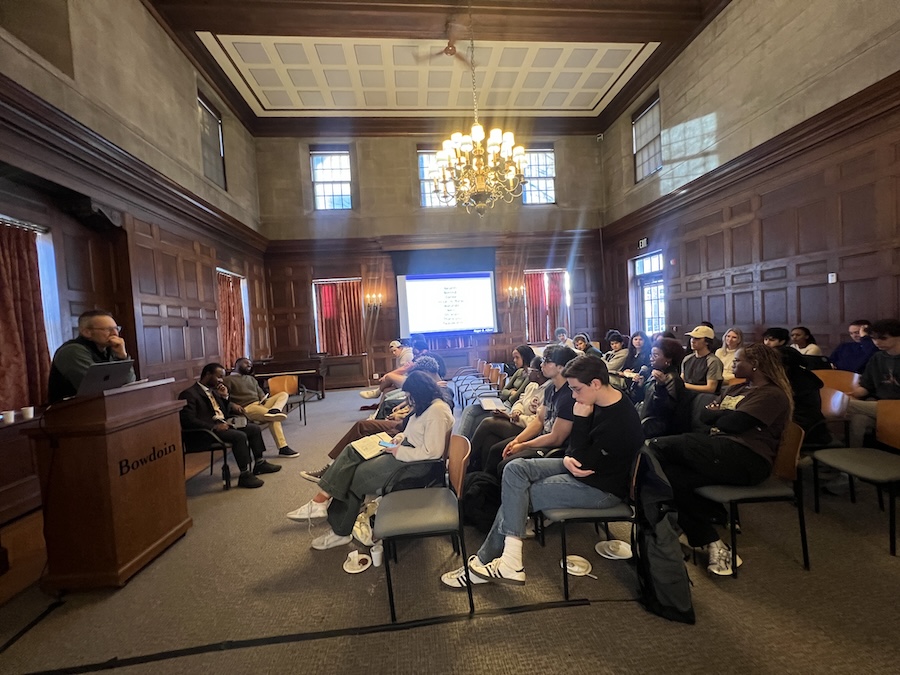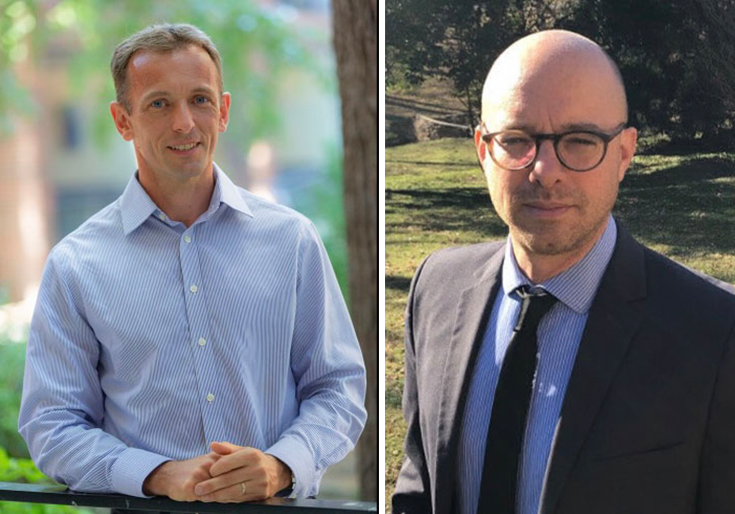Author Junot Díaz to Launch Symposium Examining Plight of Haitians in Dominican Republic
By Tom Porter
“Haiti has been in the news for a number of humanitarian crises in recent years,” said history professor Allen Wells, “from the devastating earthquake in 2010, to Hurricane Matthew, which swept through in early October. But one disaster that has gone largely unnoticed,” he said, “is the refugee crisis sparked by a court decision in neighboring Dominican Republic three years ago.” It was a decision that called into question the legal status of the approximately 200,000 ethnic Haitians living and working in the DR, many of them for generations.
Many of those people now appear to have left the DR—more than 100,000 of them, according to Amnesty International. A report issued in June claimed more than 40,000 Dominican Haitians have been deported—several hundred of them unaccompanied children—with a further 68,000 having left “spontaneously,” driven out most likely by fear and intimidation. Wells said this has led to a chaotic situation at the border, where thousands of Haitians have ended up in poorly served refugee camps. Over a year ago, Wells, who directs Bowdoin’s Latin American Studies program, teamed up with Assistant Professor of Anthropology Greg Beckett (who has done much field work in Haiti and is currently on academic leave), to figure out how to draw more attention to the issue. The result is an all-day symposium on Friday November 4, 2016, titled “Rendering Dominicans of Haitian Descent Stateless. “The aim,” said Wells, “is to consider the implications of the current crisis, relations between the two countries, and what this policy means for the Dominican economy.”
The event is preceded, on the evening of Thursday, November 3, 2016, with a talk by Dominican-American author Junot Díaz, who will deliver the Kenneth V. Santagata Memorial Lecture in Morrell Lounge at 7 p.m. Díaz, who won the Pulitzer Prize for Fiction for his 2008 novel The Brief Wondrous Life of Oscar Wao, has been a vocal opponent of the Dominican government on this issue. “We were lucky to get him,” said Wells, who pointed out that this was the first time he had to use an agent to book a speaker. “We gave Díaz the leeway of either delivering a talk or reading a story he’s written, so we’re not sure what to expect.” Either way, Wells said, they’re expecting a large crowd. Friday’s events meanwhile, which will all take place in Main Lounge, Moulton Union, will feature two historians, two anthropologists and a poet, Bowdoin Professor of Romance Languages and Literatures Hanetha Vete-Congolo.
Slideshow: Haitian refugees living near the Dominican border





The current crisis dates back to a 2013 Dominican Constitutional Court decision to strip the citizenship of children born to Haitian immigrants in the Dominican Republic as far back as 1929. Many of these people do not have proper documentation, said Wells, “so even though in many cases they have lived and worked in the Dominican for generations, speak Spanish, and are an integral part of the local economy, they are being deported to Haiti, a country they may never have lived in before, or they find themselves in a state of legal limbo.”
There’s been no shortage of international criticism for the way the Dominican government has behaved, Wells said. “The International Court of Justice, Amnesty International, and Human Rights Watch have all criticized the government in Santo Domingo over this policy.” But, he added, the Dominican government has pushed back, arguing it’s entitled to make its own laws and that other countries “shouldn’t throw stones.”
The government claims the policy is designed merely to clarify the status of the DR’s many undocumented immigrants. But, said Wells, the deportation law is largely due to pressure from nativist segments of the Dominican elite, who want to protect their country from a perceived immigrant threat. In reality though, he continued, the policy may be having a negative impact on the Dominican economy, which could now face labor shortages in some of the key areas where cheap Haitian labor is employed. “Haitians, or people of Haitian descent, permeate many areas of the Dominican economy,” Wells observed, “occupying jobs in tourism, petty commerce and agriculture.” They may find themselves at the bottom of the pay ladder in the DR, he said, but their standard of living is still better than it would be in Haiti, which is the poorest country in the Western Hemisphere, with 80 percent of the population living beneath the poverty line.
“Historically, relations between Dominicans and Haitians and their governments have run the gamut,” noted Wells. “Dominicans of Haitian descent have lived alongside Dominicans, intermarrying, opening businesses, and making notable contributions to Dominican society.” But there have been moments like the present, he said, where a nativist backlash has reared its head. “For instance, Dominicans needed cheap labor to work on sugar plantations, some owned by US corporations, and large numbers of Haitians were brought over in the late nineteenth and early twentieth centuries.” In October 1937, Wells said ant-Haitian sentiment exploded when, on the orders of dictator Rafael Trujillo, the Dominican military massacred more than 15,000 Haitians who were living along the border.
“We are bringing to campus scholars who can help us make sense of this crisis,” said Wells, “who will explain the long history that links these two neighboring countries together even as it rips their peoples apart, and who will get beyond the rhetorical binaries that too often simplify and distort.”

Audio: Prof. Allen Wells explains the background to the current crisis (file may take a few seconds to load.)



